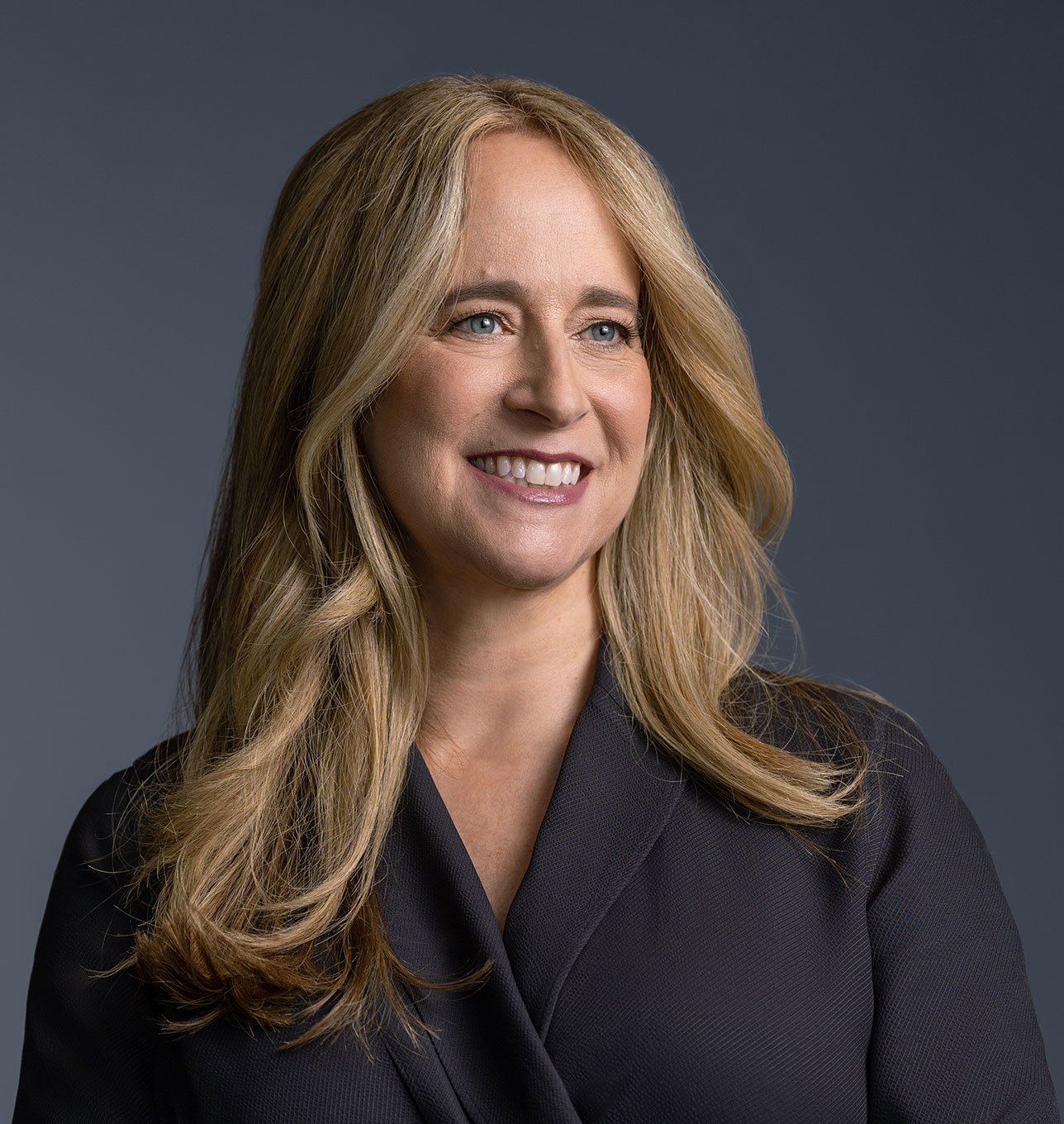What a Biden Presidency Will Mean for Structured Finance
The implications of the 2020 election for structured finance are coming into focus. Informed by our discussions in Washington, we can anticipate the likely direction of federal policy over the next two years that will impact the structured finance markets.
Although former Vice President Joe Biden has won the U.S. Presidency, the predicted “Blue Wave” that would have given Democrats control of both the White House and Congress did not materialize. Republicans will likely retain the Senate and unexpectedly gained seats in the House of Representatives, substantially reducing the Democratic House majority.
If Republicans retain their Senate majority following the two runoff elections in Georgia set for January 5th, the absence of unified Democratic control will mean that while financial policy will shift in a Biden Administration, that shift will be muted, though not insignificant, and will primarily be effected through presidential and regulatory actions rather than legislation. However, it is important to note that if Democrats do win both of the runoff elections in Georgia (or later events occur that shift the Senate majority to the Democrats), then it is very likely that Democrats would aggressively use their narrow majorities in Congress, including to pass substantial tax legislation and far-reaching regulatory reforms. The course of financial policy over the next two years largely hinges on which party controls the Senate.
From a macroeconomic perspective, if the Republicans hold the Senate, the U.S. would likely continue its current accommodative monetary and fiscal policies, since significant tax increases would be unlikely. The open question is the degree to which fiscal policy will be accommodative going forward.
With respect to interest rates, a critical factor for structured finance, yields on Treasuries fell when the predicted “Blue Wave” failed to materialize, which reduced expectations of the amount of future borrowing by the federal government, including for a new COVID-19-related stimulus package. Indications are that interest rates will remain low for the foreseeable future, which is generally positive for the demand for consumer loans and ABS/MBS but potentially decreases the demand for some consumer receivables such as auto leases.
A Threshold Matter: Personnel is Policy
The likelihood that the Republicans will retain their majority in the Senate increases the importance of the Biden Administration’s financial regulatory appointments. The Biden transition team has indicated that President-elect Biden’s senior economic team will likely be rolled out in December. We expect to see first an announcement of the nominee for Treasury Secretary, followed by announcements of the nominees for Chair of the Securities and Exchange Commission, the Commodity Futures Trading Commission, and the Comptroller of the Currency.
How a Biden Administration will handle the Consumer Financial Protection Bureau (“CFPB”) and the Federal Housing Finance Agency (“FHFA”) is unclear at this time. Those agencies are led by Trump-appointed directors whose terms have not expired, but who, in the case of the CFPB, can be removed at will by the President, or, in the case of the FHFA, will be subject to removal at will by the President if, in a Supreme Court case to be decided early next year, the high Court follows its recent precedent permitting at-will removal of the CFPB director. Expectations that the Biden Administration would promptly terminate those directors may now be tempered by the likely need for the Biden Administration to work with a Republican-controlled Senate to confirm its nominees. Nevertheless, expectations are that the Biden Administration will seek to have a new director of the CFPB in place as soon as possible.
With respect to appointments to the Federal Reserve Board, President-elect Biden may open up a seat if he nominates Fed Governor Lael Brainard to be Treasury Secretary. Another seat is expected to open up in October of next year, when Randy Quarles’s term as Vice Chair ends. The Senate is currently considering nominees for the two open seats at the Fed. If those nominees are not confirmed before the end of this Congress, the Biden Administration will immediately be able to nominate two individuals to the Fed Board.
Federal Deposit Insurance Corporation (“FDIC”) Chair Jelena McWilliams’s term lasts until 2023, but because the director of the CFPB and the Comptroller of the Currency are members of the FDIC Board, once President Biden appoints new leadership to those agencies, a majority of the FDIC board will consist of Democratic appointees.
Lame Duck Session: Prospects for Stimulus Bill
The most immediate impact of the election in terms of economic policy, with implications for structured finance, will be on the ongoing negotiations for another stimulus bill to address the continuing impact of the COVID-19 pandemic. During the lame-duck period (the period between the election and the swearing-in of the new Congress in January), Congress will likely seek to pass another stimulus bill. Senate Majority Leader Mitch McConnell has said that he would like to pass a bill by the end of the year. Such legislation would still need to secure House Speaker Nancy Pelosi’s support, and she has so far insisted that the price tag be north of $2 trillion. Senate Republicans voted in favor of a package with a $650 billion price tag in September, but a deal would likely be above that figure, as the White House has voiced support for a package above $1 trillion. It is possible that Congress passes another stimulus bill in the lame-duck, but it is not guaranteed.
Another stimulus bill would likely build on the programs established by the CARES Act and include:
- Reauthorization of the Paycheck Protection Program for small businesses (with additional restrictions on eligibility and new requirements for participating banks); and
- Extension of enhanced unemployment benefits at a rate below the $600 per week provided in the CARES Act.
The bill could also include:
- A new foreclosure moratorium and payment forbearance for federally-backed mortgages, which would impact mortgage servicers, the value of MBS, and the residential mortgage space more generally;
- A possible eviction moratorium; an eviction moratorium could adversely affect Single-Family Rental securitizations;
- An extension of funding for Federal Reserve emergency lending facilities (see below);
- Funding for state and local government, though in a far smaller amount than the $1 trillion sought by Speaker Pelosi; and
- A liability shield for COVID-19 pandemic-related lawsuits.
The Future of TALF and Other Federal Reserve Emergency Credit Facilities
The funding authorized by the CARES Act for the Federal Reserve’s emergency lending facilities expires at the end of the year. Likely incoming Senate Banking Committee Chair Pat Toomey (R-PA) has already publicly stated that the Fed’s emergency lending facilities should terminate at the end of the year. If the CARES Act funding for the emergency lending facilities is not reauthorized, the Fed would be prevented from making new loans through its emergency lending facilities, though it would not have to terminate existing loans. The Term Asset-Backed Securities Loan Facility (“TALF”) that supports structured finance utilizes funds appropriated in the CARES Act, and would likely be prevented from making new loans if the CARES Act funding is not reauthorized.
If the CARES Act funding is extended and the economy displays weakness next year, the Biden Administration will likely encourage the Fed to modify its underwriting criteria for its Main Street Lending Program to increase eligibility and participation.
GSE Reform
In the immediate term, the most significant reform on the horizon for structured finance is the Trump Administration’s current effort to end the decades-old conservatorships of Fannie Mae and Freddie Mac (the “GSEs”). The Biden team has not indicated its policy views on the future of the GSEs. However, FHFA Director Mark Calabria has signaled his intention to finalize a new capital rule for the GSEs before the end of the year. Once that rule is finalized, or possibly beforehand, he is expected to announce how he intends to proceed with terminating the conservatorships. Director Calabria has indicated that the conservatorships could be terminated with an interim step being that the GSEs would operate under a consent order while raising capital.
It is important to note that the Supreme Court is hearing a case next month about the validity of the Third Amendment to the Preferred Stock Purchase Agreement between Treasury and FHFA, through which Treasury provides fiscal support for the GSEs. If the Supreme Court signals at its oral argument next month that it may invalidate the Third Amendment when it issues its decision, likely in March or April, it may compel the FHFA and the Treasury Department to proceed more quickly with reform. Alternatively, it is possible that the Biden Treasury Department will seek to halt the reform efforts upon taking office.
Legislative Possibilities Limited – IF Republicans Keep the Majority in the Senate
While significant legislation is always a possibility if there is a major event that galvanizes public support for a legislative response (such as the 2001-2002 accounting scandals that prompted Congress to pass the Sarbanes-Oxley Act), we anticipate that the votes will not exist for dramatic financial regulatory reform if the Republicans retain the Senate majority.
That said, we would still expect Congress to be active next year, as is the case during the first year of any presidency. Legislation could include the following areas affecting structured finance at least indirectly:
- Infrastructure legislation, as the Highway Trust Fund expires in September of 2021, requiring reauthorization and providing a vehicle for a substantial infrastructure bill;
- Additional funding for renewable energy research and production (including solar, which could increase the supply of solar-loan-backed ABS); and
- Additional subsidies for electrical vehicle purchases and charging stations.
A Republican-controlled Senate and a closely divided House would very likely prevent the passage of legislation that would:
- Enact major housing finance reform impacting the residential mortgage space and related securitization products;
- Use the Congressional Review Act to invalidate regulations adopted by the Trump Administration since May of 2020 (the statutory timeframe in which the CRA can be used with respect to a regulation); the regulations exposed to reversal under the CRA include the recent revisions to the Volcker Rule, including changes paving the way for liberalization of certain investment restrictions in CLOs that bank investors in many such vehicles had required in order to comply with the previous version of the Volcker Rule;
- Impose substantial tax increases;
- Establish interest rate caps on non-residential consumer lending; or
- Enact the “Green New Deal” or other environmental legislation that greatly expands corporate legal liability.
Again, it is important to emphasize that if Democrats win both of the Georgia Senate seats on January 5th (or other unanticipated events flip control to the Democrats), we would expect that Democrats would then aggressively use their legislative majorities - as narrow as they would be – to potentially pass some of the above items, in particular substantial tax reform and far-reaching environmental legislation, and a Senate rule change to eliminate the filibuster. Again -- a lot of financial policy that could impact structured finance hinges on the narrow margin of control in the Senate.
Given the substantial federal deficit and soaring debt-to-GDP ratio, the Biden Administration also is likely to examine how to place the federal government’s finances on a more sustainable footing, including by reversing the Trump tax cuts. It will be extremely difficult to adopt substantial budget reforms on both the revenue and spending sides given the likely divided control of Congress and sharp divides in the Democratic caucus in Congress. Nevertheless, we expect that the Biden Administration will seek to include targeted tax increases (including raising the corporate and capital gains rates and treating carried interest as ordinary income) as part of future budget deals with Senate Republicans.
Executive Branch Regulatory Reforms
An inability to pass significant financial services legislation if Republicans retain the Senate majority will likely force the Biden Administration to implement its financial service policy agenda through existing presidential and regulatory authorities. President-elect Biden is expected to revoke many of the Trump Administration’s executive orders and issue a series of new orders that set policy for his Administration. Although the president does not have substantial authority to change financial regulatory policy through executive orders, the issuance of executive orders will signal the direction of policy under a Biden Administration.
The groundwork for reform by financial regulators that could impact structured finance has already begun. Federal Reserve Vice Chair for Supervision and current Chair of the Financial Stability Board Randy Quarles and SEC Chair Jay Clayton have signaled that reforms are likely needed to address regulatory weaknesses in the non-bank sector that have surfaced in the wake of the COVID-19 economic shock. They have focused on the need to re-examine the regulation of securities dealers, in particular primary dealers, and non-bank mortgage lenders and servicers due to the continued movement of the mortgage credit market away from banks. This push for reform is likely to extend beyond the Trump Administration and set the stage for the Biden Administration to pursue new regulation that could have a substantial impact on structured finance.
One option for reforming non-bank finance would be for the Financial Stability Oversight Council (“FSOC”) to designate large non-bank companies for enhanced prudential supervision by the Federal Reserve and/or to determine that lending or other activities by non-bank companies should be subject to additional regulation or a new statutory regime.
Biden appointees to financial regulatory agencies are likely to consider implementing a wide range of other rules that would impact structured finance, including:
- Reforms to the Volcker Rule to limit bank exposures to structured finance risks, either through supervision or modifications to the recently finalized rules (Fed Governor Brainard voted against the recently finalized Volcker changes, signaling that she may want to revisit the rules at a later date);
- New capital and liquidity requirements for non-bank mortgage companies;
- Reforms of the Treasury market, including potentially creating a central clearinghouse for Treasury securities;
- Relief with respect to Federal Direct Student Loans and FFELP student loans, including forbearance and forgiveness with respect to loans owned or guaranteed by the Department of Education;
- Reversal of the True Lender/Valid-When-Made regulations issued by the Comptroller of the Currency and the FDIC;
- Stronger oversight of consumer lending (including credit cards);
- Credit score and credit bureau reforms;
- Environmental, social and governance (“ESG”) requirements for public companies and government contractors; and
- Capital charges or other supervisory restrictions on banks financing carbon-energy-intensive businesses or carbon-energy-producing businesses.
Enforcement
The Biden Administration will also likely use enforcement to advance its policy agenda due to both the difficulty of passing legislation and the discretion afforded to craft remedies. The Department of Justice and financial regulators (including in coordination with state regulators and attorneys general) will likely focus enforcement actions on the following areas of relevance to structured finance markets:
- Fair lending;
- Student loan and mortgage servicing violations;
- Unfair, deceptive, or abusive consumer lending (especially auto loans, non-bank lending, student loans, and credit cards);
- Debt collection practices;
- Consumer and investor protections, with larger penalties and less credit for self-reporting and cooperating with regulators upon the discovery of a violation; and
- Stricter application of antitrust laws, especially with respect to larger financial institutions.
For more information, please do not hesitate to contact us or any of the other listed Mayer Brown contacts. Mayer Brown continues to monitor developments relevant to structured finance as the Biden transition team identifies senior personnel, and as the incoming Biden Administration and Congress signal their policy priorities for the coming weeks and next year.











